Female Tech Heroes swaps conference room for small coaching sessions at home
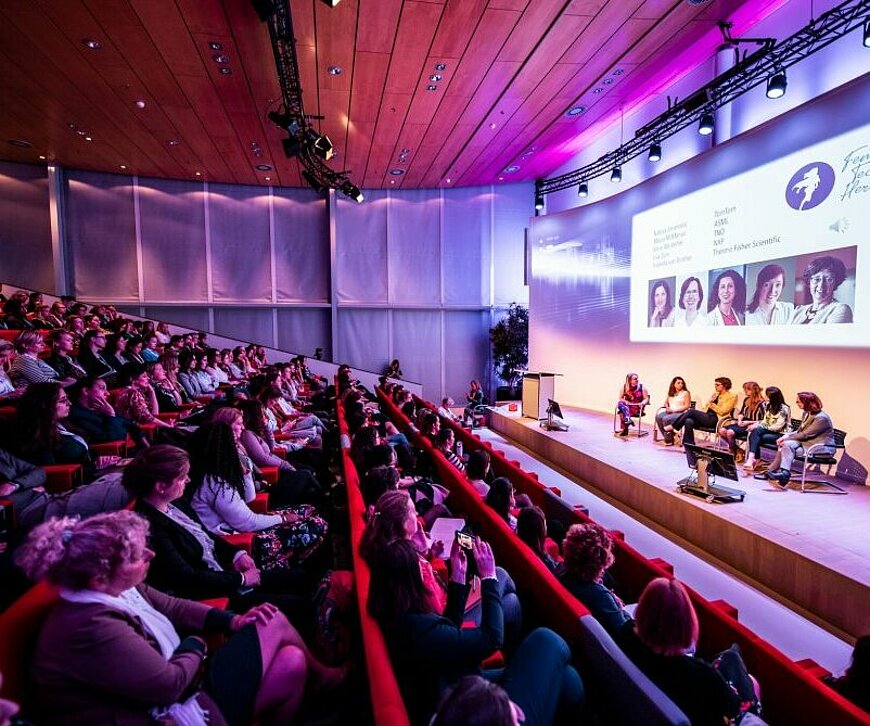
To make connections remotely, that's what the founders of Female Tech Heroes Ingelou Stol and Hilde de Vocht want. Which is why they came up with an alternative for the Female Tech Heroes congress.
“In a male-dominated world, you have to realize that we are equal but different,” says Bilim Atli-Veltin, Senior Scientist at the Netherlands Organization for Applied Scientific Research (TNO). This is her message during the online Female Tech Heroes – Mentors event on December 1. Under normal circumstances, there would be a congress. But now it will be online coaching sessions with one of the 30 role models of the network for a total of 120 members of Female Tech Heroes.
Connection
During the Female Tech Heroes’ dinner last September, founders Ingelou Stol and Hilde de Vocht received compliments for ensuring connections were made even at a distance of a meter and a half. “When I heard that, I thought we should definitely let our event in December go ahead,” says Stol.
A plan was devised in which 30 people from different backgrounds, both women and men, could give coaching sessions. The role models of the network, such as Carmen van Vilsteren, Guus Freriks, Bilim Atli-Veltin, and Núria Barceló Peiró. Each session is attended by four people. “Each call is also accompanied by someone from Female Tech Hereos who moderates the discussion. So, it was a nice challenge from an organizational point of view. But we really don’t want to postpone it any longer. There’s such a great need for it.”
Open conversation
People from the network were able to register in advance. The mentors choose the subject and decide how they want to hold the session. One person wants to give an assignment, another just wants to listen to the stories of others, says Stol. “But what matters most is that it is an open conversation where you can put your own ideas forward and where tips can be shared.”
Height doesn’t matter
Núria Barceló Peiró, R&D IT Program Manager at NXP Semiconductors, is one of the mentors. Gender, height, or origin are no reason for her not to be able to do anything. “When I was eight years old, I wanted to become a stewardess. Together with a friend. She was very tall and I was short. Becoming a stewardess wasn’t going to be a viable option for me.” At that age, Barceló Peiró realized that her height would determine whether or not she could become a stewardess. “I let my talents guide me and I don’t allow myself to be told by other people that I can’t do something because I am a woman. Maybe for security reasons, you have to be a certain height, but in terms of intelligence there is no reason not to choose me.”
Barceló Peiró lived in Barcelona until she was 24 years old. Since then, she has made her home in Buenos Aires, Madrid, and a town near Zurich. She eventually ended up in the Dutch city of Eindhoven. She has now lived and worked there for the past 18 years and had her two sons there too.
Curious
To her, diversity means being curious about others. “I am always open to the culture of another person. It is good to live somewhere else for more than a year. This helps you gain a bit more sympathy for immigrants and you get to experience how difficult it is to integrate. If you live in another country, you learn that they have different habits and customs. That’s not necessarily better or worse. But you learn that you can solve the same problems in a variety of ways.”
NXP is committed to more inclusivity and diversity within the company. For example, there is an inclusivity manager as of September, Sherry Alexander. Barceló Peiró is part of a group that focuses on more gender diversity within NXP. Of the NXP staff, 13 percent are women, says Barceló Peiró, and that includes departments such as Human Resources, Sales, and Finance. “The percentage is even lower for technical positions. In order to raise that percentage, events like Female Tech Heroes – The Mentors are terrific. But we do need our male colleagues to support us in order to change this,” the program manager asserts.
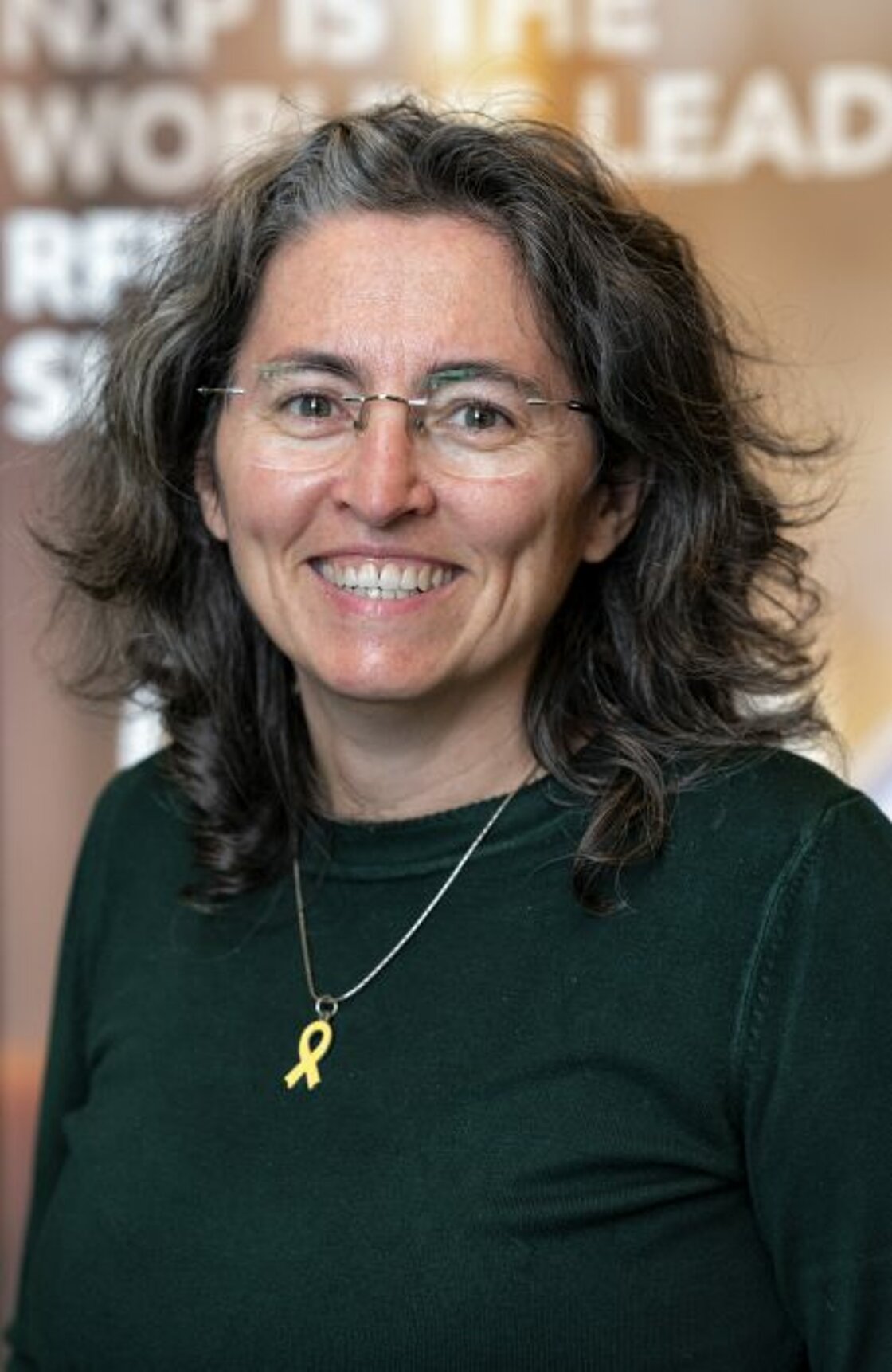
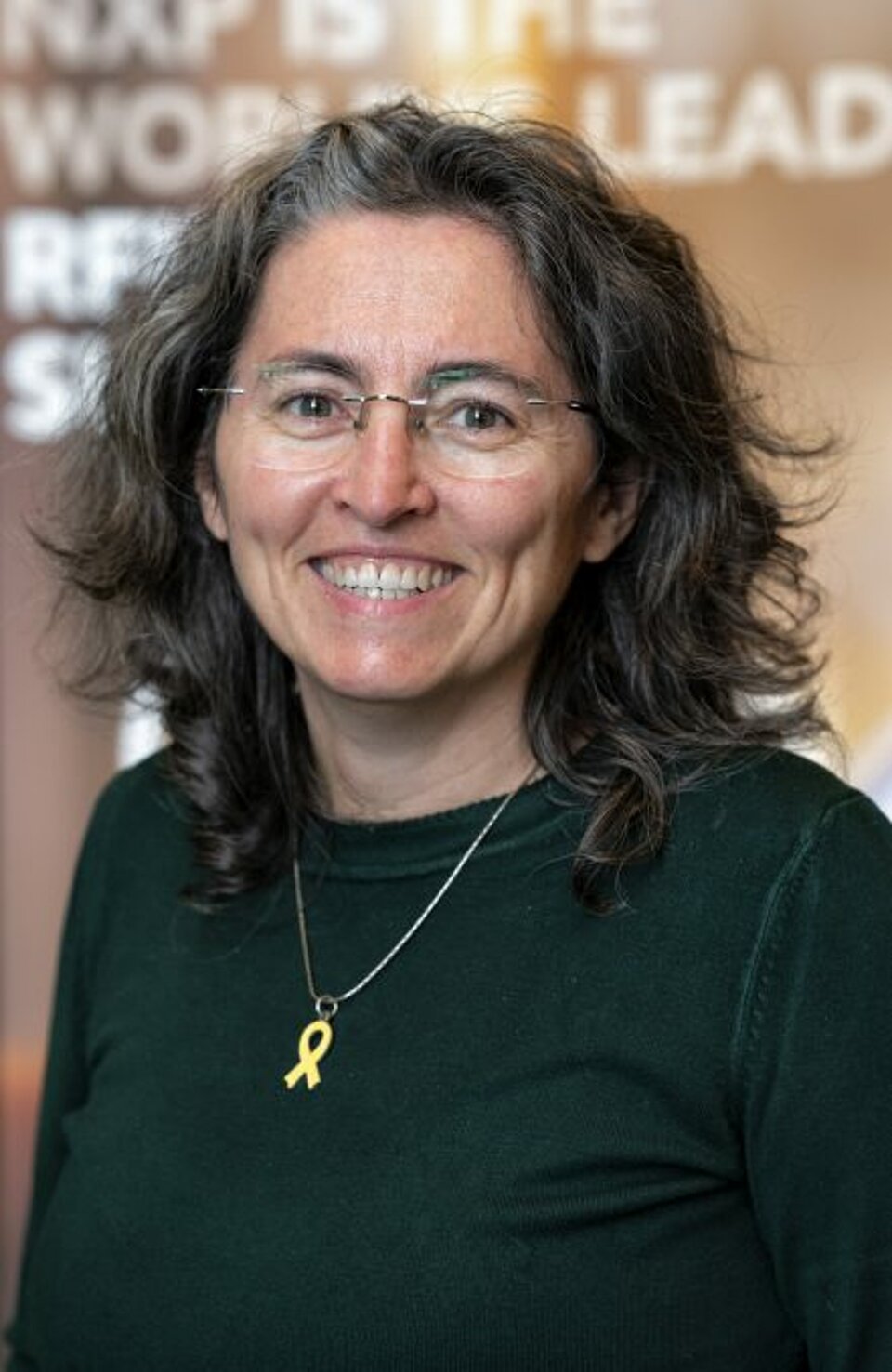
Stereotypes
Last year, Barceló Peiró gave a workshop on stereotypes and how our brains work. Barceló Peiró explains that we are able to make decisions faster because of stereotypes. She showed symbols of professions, for example, a policeman and a teacher. The attendees were invited to give them names. “As a rule, the police officer was given a male name, and the teacher a female one. If you are aware that this is how it works, you can do something with it.”
Three men were present there at the time. “That is also my own doing,” Barceló Peiró confesses, “When I go to events like this, I don’t ask my male colleagues if they’ll come with me. That is also my own responsibility, but it’s just not in my system yet.”
Her topic during the mentor session is innovation and networking in an ecosystem and personal growth. “I always have the courage to say what I want. With that, I make use of my network, and it’s sometimes not so handy to be too direct. You have to use all the tools you need to reach your goal.”
Love of science
Senior Scientist at TNO, Bilim Atli-Veltin, is also one of the mentors. “Bilim is Turkish for ‘science’,” Atli-Veltin states. Her father gave her that name, he was a professor in aerospace engineering. “My love for science probably came from him.” Thanks to the lifestyle of her family, Atli-Veltin never noticed any difference between the roles of women and men. Until she went to university, she says. She followed her father’s example and studied aerospace engineering at one of the oldest universities in the world, the Technical University of Istanbul. There, she sat in the auditorium with only four women. The rest were men.
For Atli-Veltin, there are also no restrictions in what you can do as a woman. She worked hard to be accepted into a university in the United States. In order to do her master’s there and to obtain her PhD later on. Study costs are high in the USA. That is why Atli-Veltin came up with a plan of talking to the department head. Eventually she managed to convince Pennsylvania State University to give her a teaching and research internship. This covered all her costs.
After completing her PhD research, she moved with her family to Delft in the Netherlands. Her husband got a job at the TNO research institute there. She found a job at Philips at the High Tech Campus Eindhoven (HTCE). She became Junior Scientist at TNO in 2012. She now contributes as Senior Scientist to the research agenda of the Buildings, Infrastructure & Maritime department there. She also works part-time as Visiting Scientist at the Aerospace Engineering at Delft University of Technology. In 2019, she was named Young Excellent Researcher of the Year at TNO, for her research on cryogenic storage of alternative fuels.
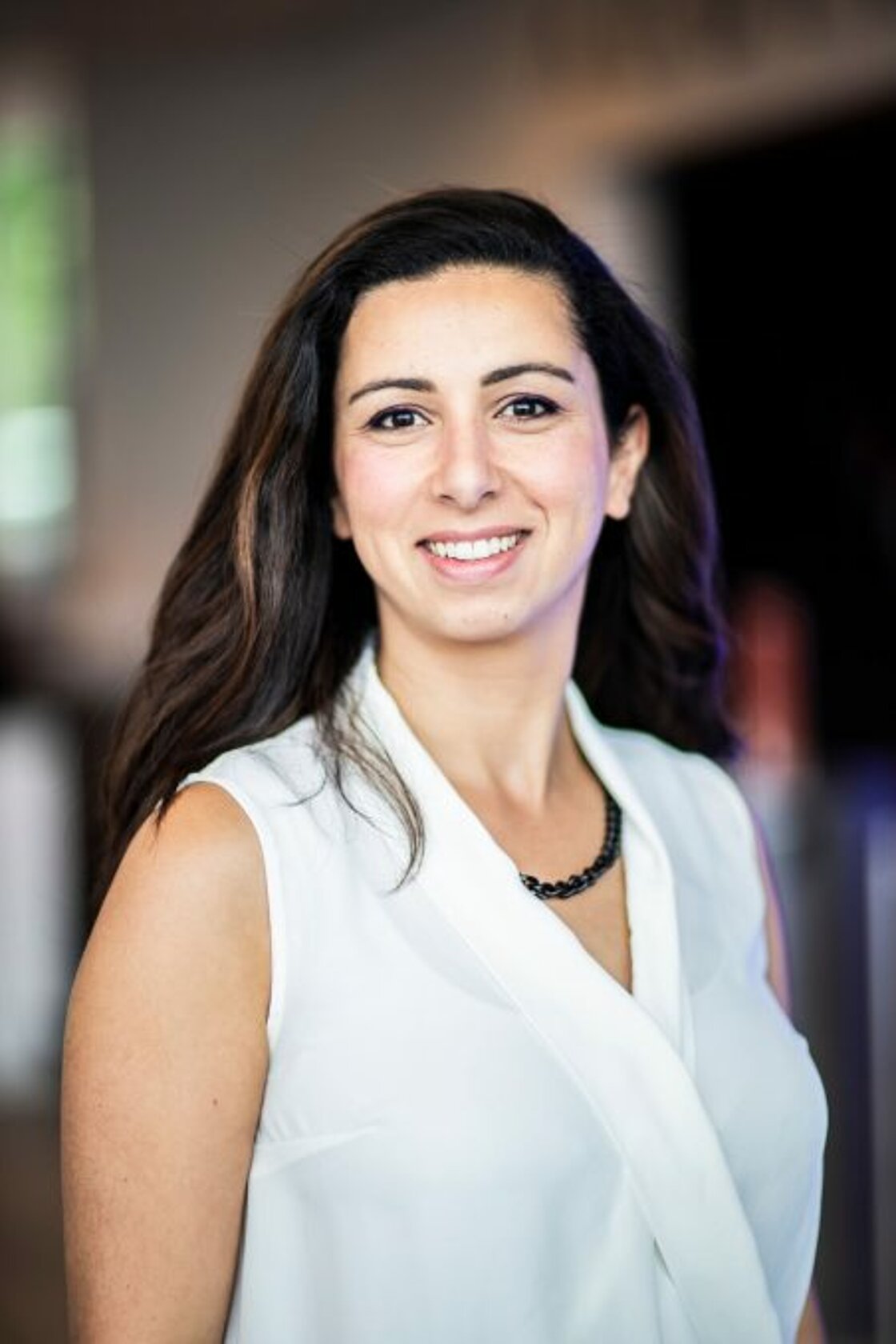
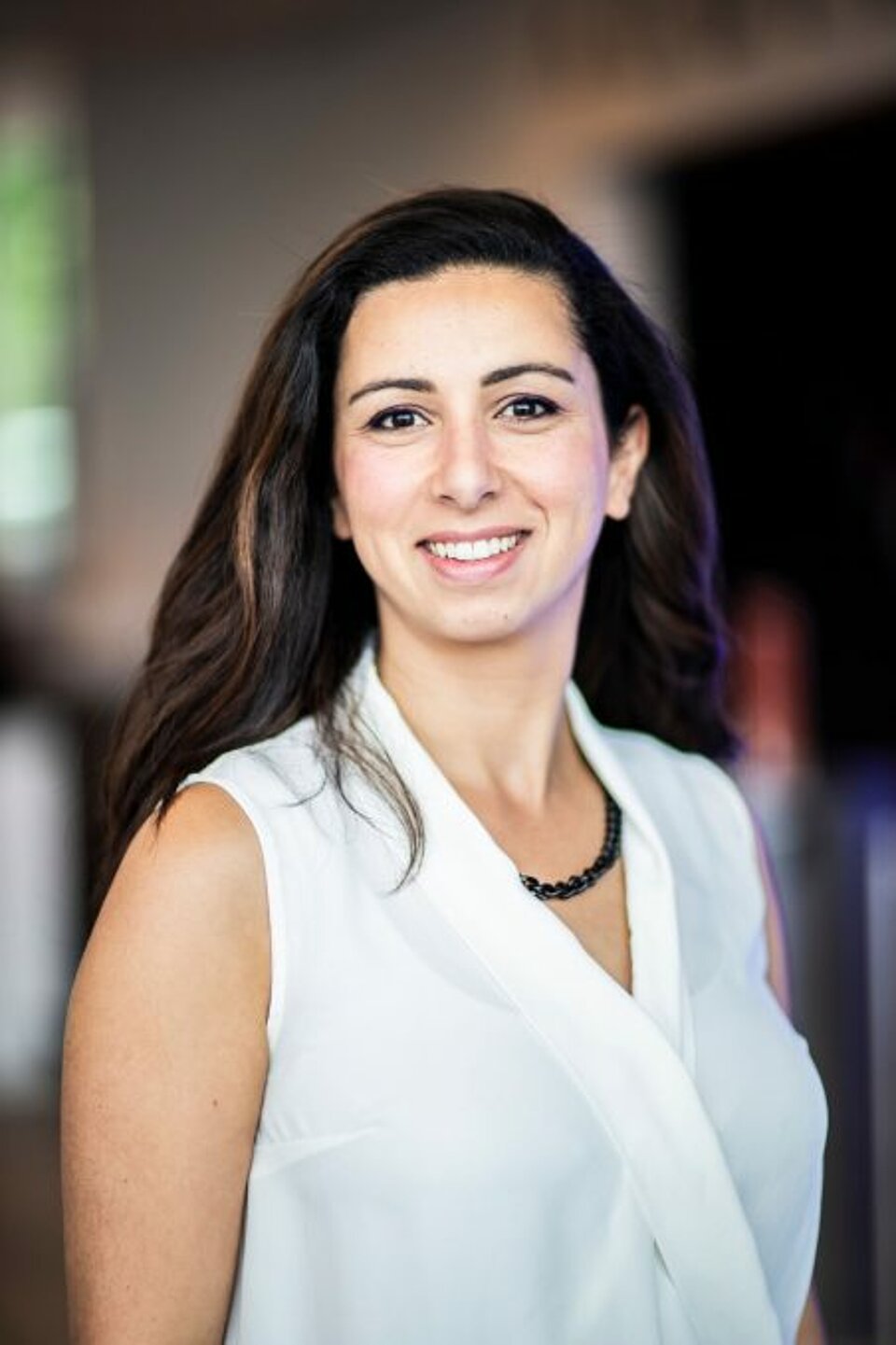
Buy your diploma?
Diversity goes well beyond just mixing women and men together. It also involves combining people from different backgrounds and cultures. During her Dutch civic integration course, Atli-Veltin noticed that Dutch people have certain prejudices about her Turkish background. In a conversation with her teacher, she told her teacher that she had studied aeronautical engineering. “That’s one of those countries where you can buy your diploma”, the teacher responded.
Or the example of a Turkish friend, who is one of the chief architects at Schiphol Airport. She told her Turkish neighbor, who has lived in the Netherlands for a long time, that she works at Schiphol Airport. “Oh, that must be difficult to clean up!” the neighbor reacted,” says Atli-Veltin laughing. “You mustn’t let yourself be discouraged by these things. On the contrary, they encourage me to speak out about my background, my struggles, and my achievements. So as to show that it doesn’t matter where you come from and that you can be what you want to be.”
Be a little deaf
Atli-Veltin also has several role models who inspire her. Like Ruth Bader Ginsburg, who until her death was one of the nine judges on the Supreme Court of America. “She said: ‘You have to be a little deaf to survive.’ When unkind or thoughtless words are said to you, it’s best to tune them out. Reacting angry or irritated is counterproductive. Christine Lagarde, the current president of the European Central Bank, also says: ‘Grit your teeth and smile.'”
Although being a little deaf does not prevent you from getting hurt by those kinds of comments, Atli-Veltin emphasizes. “You have to pick your battles. Sometimes you have to deal with people who have no empathy, or people who base their opinions on false and narrow arguments. You won’t change that. It is what it is. All I can do is work hard, seize opportunities, and let my results prove my strengths.”
Her subject for the mentor session at the Female Tech Heroes event is career advice on how to survive in a male-dominated work environment. And she has a very important message: “Men and women are equal but different. Cherish the differences, focus on the strengths of individuals, and create the best team outcome.”